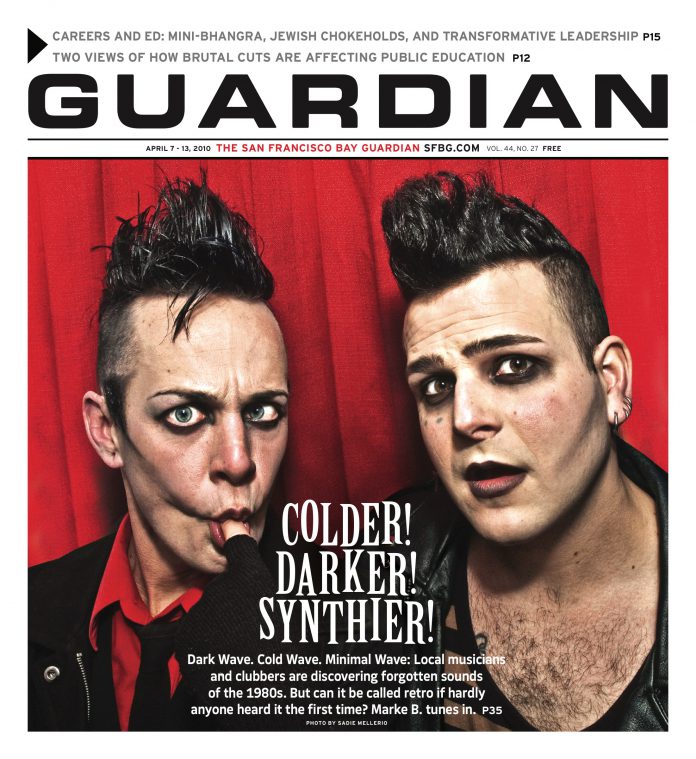CULT DVD Alejandro Jodorowsky and Fernando Arrabal have overlapped their whole lives. The Chilean Jodorowsky and Spanish Arrabal arrived in Paris is the mid-1950s, eventually cofounding (with late, lesser remembered artist French artist Roland Topor) the Mouvement Panique — a post-surreallist group named after the god Pan and dedicated to “terror, humor, simultaneity.” The two initially focused on theatrical performance and have in subsequent decades created massive bodies of plays, poetry, novels, visual art (paintings for Arrabal, comic books for Jodorowsky), and more. Internationally, they’ve been most widely experienced as filmmakers of some notoriety whose sporadic work in that medium was busiest during the wide-open late 1960s and early ’70s.
Jodorowsky, of course, rates high on any cineaste’s list of cult idols for the blood-soaked spaghetti western Christ parable El Topo (1970) and mystical-baroque colossus The Holy Mountain (1973), both recently freed from decades of legal trouble for legitimate DVD release. Arrabal’s films have been even harder to see and have fallen into comparative obscurity, partly because they’re less “fun” despite sharing much in the way of striking, shocking, and frequently blasphemous imagery.
In 2005 Cult Epics brought out a collection comprising his first three features: Viva la muerte (1970) and The Guernica Tree (1975), two violently grotesque fantasias about the Spanish Civil War whose dead included his own assassinated painter father, a loyal Republican; plus I Will Walk Like a Crazy Horse (1972), a no-less surreal yet strangely touching love story of sorts between an urban playboy on the run and the three-foot-tall male desert hermit.
Given their penchant for full-frontal nudity, antifascist politics, desecration of religious iconography, and other MPAA-unratable themes, perhaps the weirdest overlap between the two most famous “Panique” insurrectionists is that each once strayed into the alien realm of family entertainment. (They no doubt seized this inapt moment as a respite from perpetual funding woes, which famously scuttled Jodorowsky’s ready-to-go Dune and his El Topo sequel.)
Unsurprisingly, the results did not send Disney into a market-dominance panique. In fact, Jodorowsky’s 1978 for-hire project Tusk was, at least until recently. one of the most infamously unseen movies ever made, a literally and figuratively elephantine India adventure deemed unwatchable for any audience. Check out the cruddy French-language dupe with Spanish subtitles on YouTube and see how far curiosity gets you.
Arrabal’s kid flick wasn’t quite so fully buried, but it too has remained an obscure object of completist desire. Fortunately his second and final DVD collection from Cult Epics just arrived to fill that need. Nominally released in 1982, French-Canadian coproduction The Emperor of Peru stars Mickey Rooney — there goes the scenery in one big chew — as a wuvvable wheelchair-bound eccentric found living in the forest by three children on summer holiday. A former steam train engineer, he teaches them to run an abandoned locomotive so they can take their Cambodian-refugee friend back home to his parents. Never mind that there’s probably not much rail linking the South of France and Phnom Penh, let alone that in 1982 the Khmer Rouge remained very active.
How many children’s films would have dialogue like “Father’s in a concentration camp”? Emperor‘s real raison d’être, in any case, is its myriad fantasy sequences, sprung from the childish imagination of Toby (Jonathan Starr). In his daydreams he’s a firefighter or astronaut whose heroic deeds are applauded by such bystanders as Napoleon Bonaparte. Amid the goofy, mostly innocuous proceedings are stray moments of unmistakable Arrabal — as when Rooney, in full Arabian Nights regalia, is surrounded at imperial court by dwarf attendants. (Arrabal has a thing for little people.)
The new collection also includes Car Cemetery, a 1983 New Wave “punk” pose fest with Gallic pop king Alain Bashing as a postapocalyptic rock star Christ (ouch indeed). Among other rarities are Arrabal’s delightful hour-long 1992 video Farewell, Babylon!, a collage of past works, impish narrative, and sampled New Yorkers including Spike Lee and Melvin Van Peebles.

